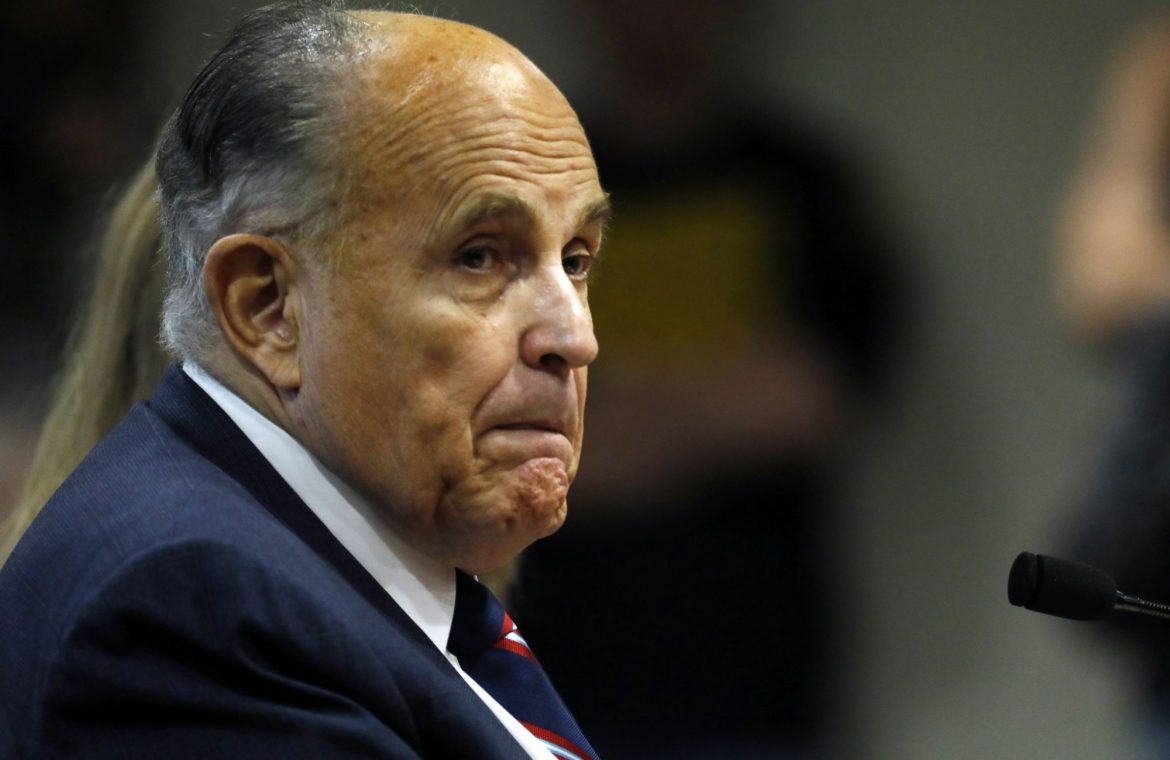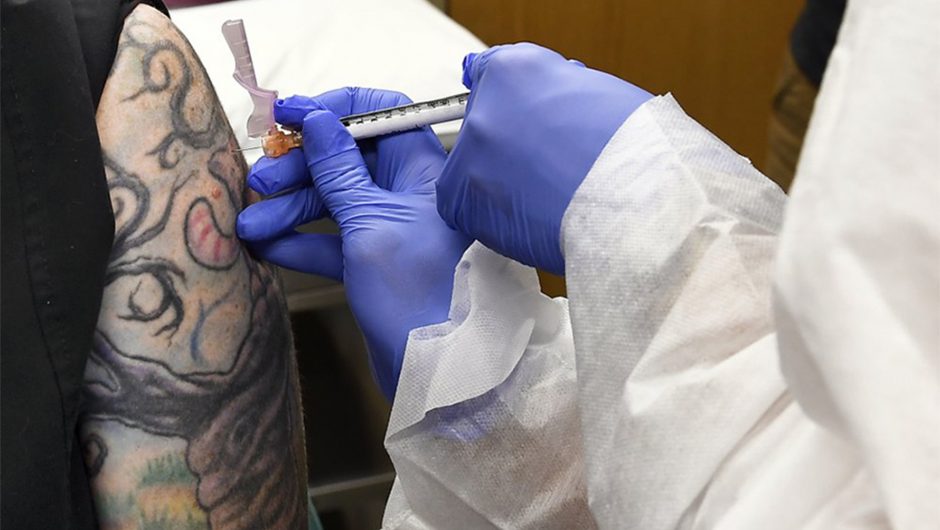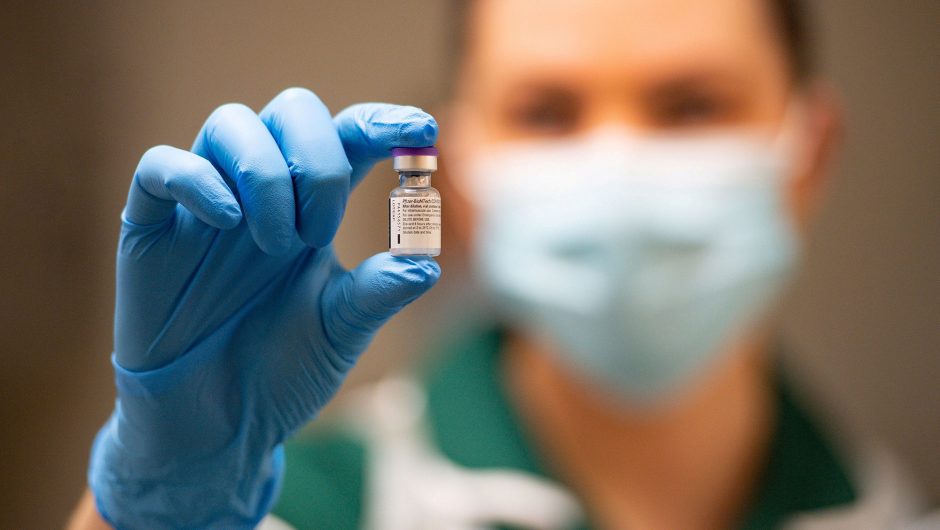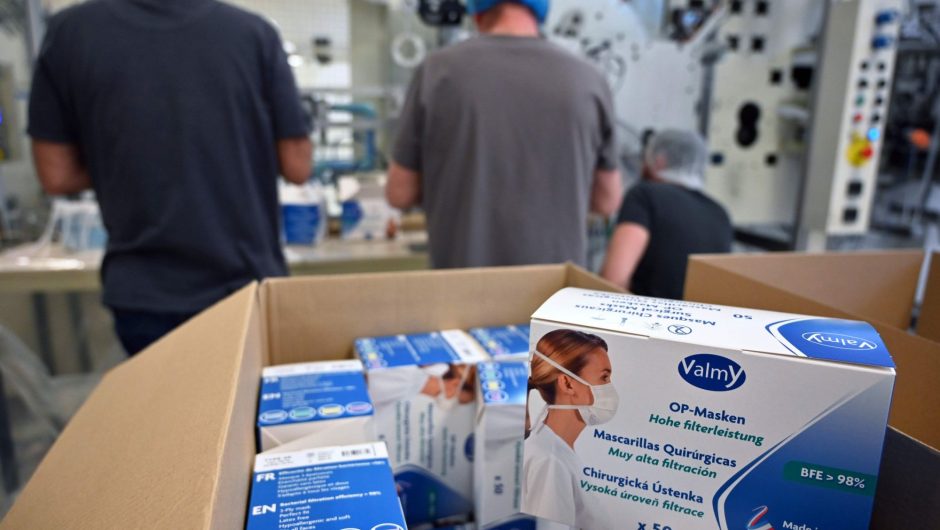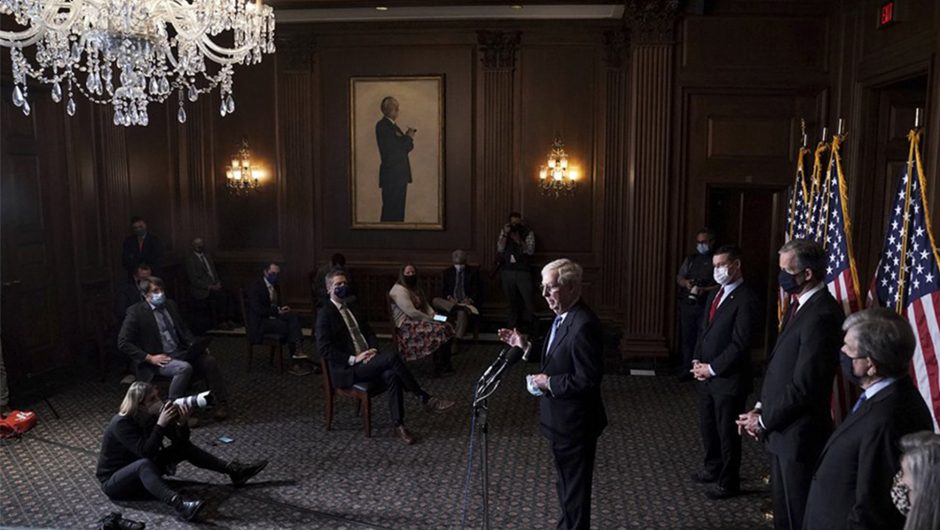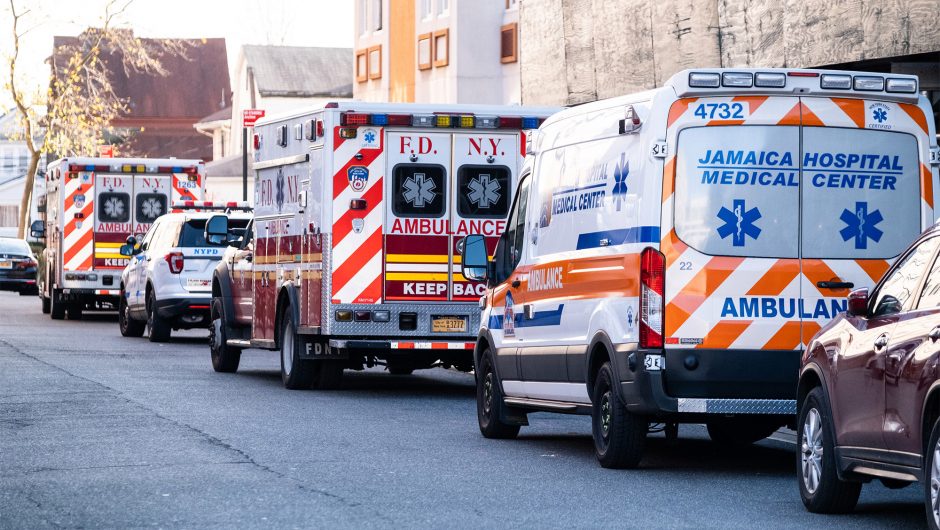While supplies of an experimental drug cocktail given emergency use authorization to treat the coronavirus remain in short supply in the United States, three associates of President Trump — who credited it with curing him when he was hospitalized with COVID-19 in October — apparently jumped to the front of the line to receive it.
As part of the treatment he received at Walter Reed National Military Medical Center in early October, Trump was given a monoclonal antibody cocktail made by Regeneron.
“I want everybody to be given the same treatment as your president because I feel great. I feel, like, perfect,” he said following his release from the hospital. “I think this was a blessing from God that I caught it.” He said Americans would soon be able to receive the same drugs he got, “and you’re going to get ’em free.”
Housing and Urban Development Secretary Ben Carson also received the experimental treatment at Walter Reed, and also recovered.
During the presidential campaign, Carson attended rallies with Trump and later disclosed that the president had personally intervened to get him the Regeneron cocktail.
Housing and Urban Development Secretary Ben Carson speaks during the Republican National Convention on Aug. 26. (Chip Somodevilla/Getty Images)
“President Trump was following my condition and cleared me for the monoclonal antibody therapy that he had previously received, which I am convinced saved my life,” Carson wrote in a Nov. 20 Facebook post. The Food and Drug Administration granted emergency use authorization for the public a day later.
Former New Jersey Gov. Chris Christie, who spent four days with Trump helping him prepare for a debate with Joe Biden, checked himself into Morristown Medical Center in New Jersey on Oct. 3 following a positive test for COVID-19. When his condition worsened, he was given a version of the same antibody treatment, this one made by Eli Lilly. That drug, baricitinib, received emergency use authorization from the FDA on Nov. 19.
Trump lawyer Rudy Giuliani, who has spent the past month trying to overturn the results of the presidential election, was given Regeneron’s drug cocktail after being admitted to Georgetown University Hospital earlier this week.
Story continues
“I am doing fine. Pretty much all the symptoms are gone,” Giuliani said in a Tuesday radio interview. “The minute I took the cocktail I felt 100 percent better. It works very quickly — wow.”
In the same interview, Giuliani acknowledged that he might have received the drug cocktail due to his stature.
“If it wasn’t me, I wouldn’t have been put in a hospital, frankly,” he told WABC radio. “Sometimes when you’re a celebrity, they’re worried if something happens to you they’re going to examine it more carefully, and do everything right.”
Rudy Giuliani at an appearance before the Michigan House Oversight Committee in Lansing on Dec. 2. (Jeff Kowalsky/AFP via Getty Images)
Over the summer, the Trump administration purchased 300,000 doses of the antibody cocktail from Regeneron for $450 million, or $1,500 a dose.
“Initially, we expect to have treatment doses for approximately 300,000 patients in total delivered between November and the end of January 2021,” Regeneron says on its website, adding, “The government has committed to providing these 300,000 doses at no cost to patients, although healthcare facilities may charge fees related to infusion administration.”
In late October, the administration spent another $375 million for 300,000 doses of Eli Lilly’s version. While those two drugs have begun shipping to hospitals around the country, the flow can best be described as a trickle in light of the fact that new daily cases of COVID-19 are now topping 200,000 in the U.S., with deaths from the disease hitting 3,055 on Wednesday alone.
Clinical trials conducted by both manufacturers have suggested that if the cocktails are given early to patients, they can help lower the viral load of COVID-19. Effectiveness later in the course of the disease is less established, and in fact the emergency use authorization specifies that it is not meant for patients already in the hospital or receiving oxygen. But some health care facilities don’t necessarily adhere to that guidance — Giuliani, for example, was already in the hospital when he received the cocktail — and hospitals have been flooded with requests for the drugs.
Medical ethicists are troubled by the implication that prominent individuals are first in line to receive them.
“It’s wrong. It’s flat-out wrong, it’s unethical and it shouldn’t be going on,” Art Caplan, the founding head of the Division of Medical Ethics at New York University School of Medicine, told CNN. “We could make the case the President is an essential worker and we’ll bump him or her up to the top of some list. But when you have people rationing scarce drugs, antibodies, when you have people rationing beds in certain places around the country — and that’s going to continue — being a celebrity shouldn’t count. Being a highly visible politician shouldn’t count. It shouldn’t count who you’re connected to. What should count is need.”
_____
Read more from Yahoo News:


